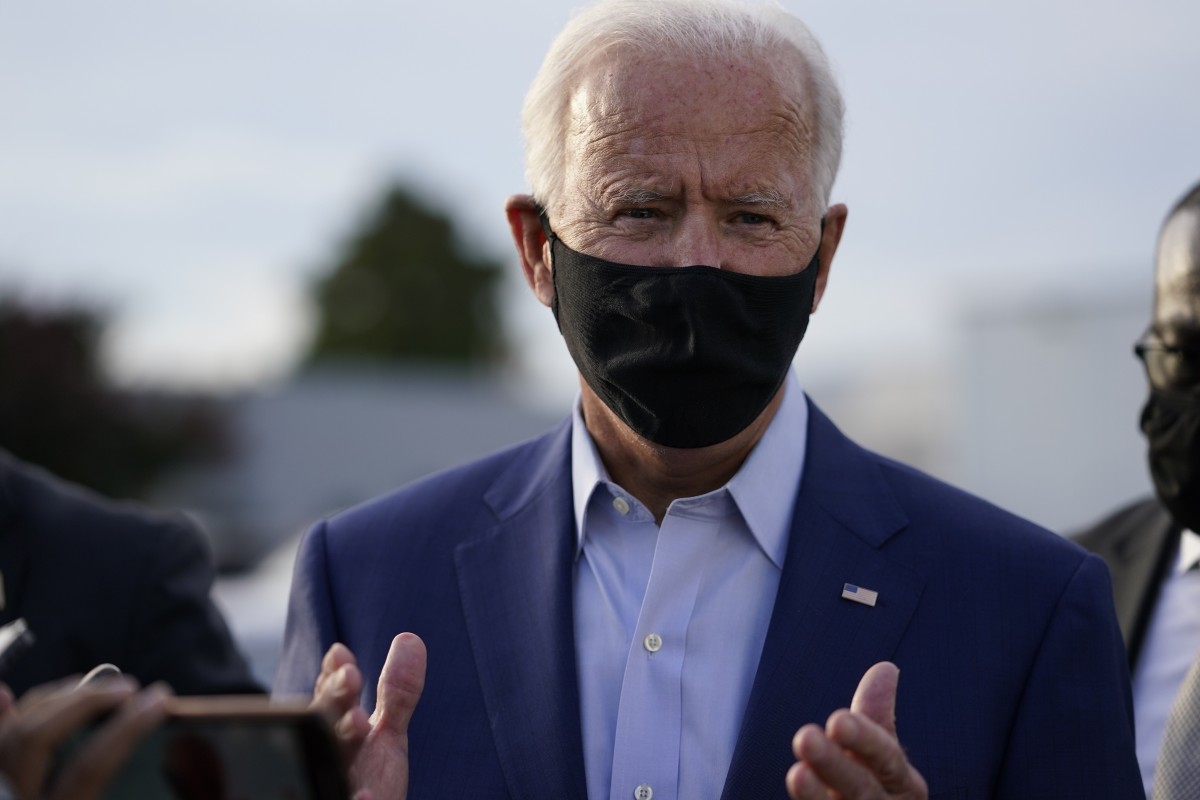
Democratic presidential candidate responds to Chinese leader Xi Jinping’s UN address with firm, straight stance
The former vice-president’s position on Beijing has shifted since his opening bid for election

Former US vice-president Joe Biden outlined his approach to China if he wins the White House in November as “firm” and “tough”.In Delaware on Wednesday morning, Biden said he did not regard US relations with China as a zero-sum game. “There’s a lot at stake in this relationship,” he said, before leaving for campaign events in North Carolina.“I will be firm on China’s violation of human rights, militarisation in the South China Sea and a whole range of things. Recent analysis points out that China knows I will be straight but they are also worried that I will be tough. I make no excuses for that, none whatsoever.”
Biden was responding to a question about President Xi Jinping’s address to the UN General Assembly, in which the Chinese leader said his country had peaceful intentions and did not want to engage in a zero-sum game – in which a gain for one side must be considered a loss for the other.
In a clear reference to the escalating tensions with Washington, Xi said China had “no intention to fight either a cold war or a hot war with any country”. His speech, which included remarks on multilateralism and globalisation, was in stark contrast to US President Donald Trump’s address to the assembly in which he attacked China for its coronavirus response and environmental record.
Trump championed his “America First” policies that helped elect him in 2016 and called for China to be held accountable for the pandemic, using language such as the highly contentious term “China virus” that has stoked xenophobic sentiment in the US.
Deteriorating relations with China have become a key issue ahead of the election on November 3. Trump has attacked Biden as being “soft” on China and described him as Beijing’s preferred candidate, while Biden has criticised the president for ceding global influence to China by weakening US alliances.
While Biden appeared to downplay the threat of China to the US at the onset of his presidential bid, his stance has shifted to align with the now-bipartisan consensus in Washington that a tougher line on Beijing is necessary after years of the so-called policy of engagement failed to liberalise the country.
Biden described Xi as a “thug” in February, and has in recent months threatened sanctions if Beijing tries to silence US citizens or companies, as well as for repression in Tibet.
Trump’s administration has been notably hawkish on China, launching a trade war over long-standing gripes about market access and intellectual property theft, as well as a technology spat that has included sanctions against Chinese telecoms giant Huawei and a looming ban of Chinese-owned apps TikTok and WeChat.
The US has also taken aggressive action on Beijing’s growing assertiveness over its claims to most of the South China Sea, Chinese influence operations and investments abroad, as well as China’s actions in Hong Kong, Taiwan and Xinjiang.
A US intelligence assessment in August found Beijing would prefer that Trump not be re-elected in November as he was seen as “unpredictable”, according to William Evanina, director of the US National Counter-intelligence and Security Centre.
Source south china morning post


Comment